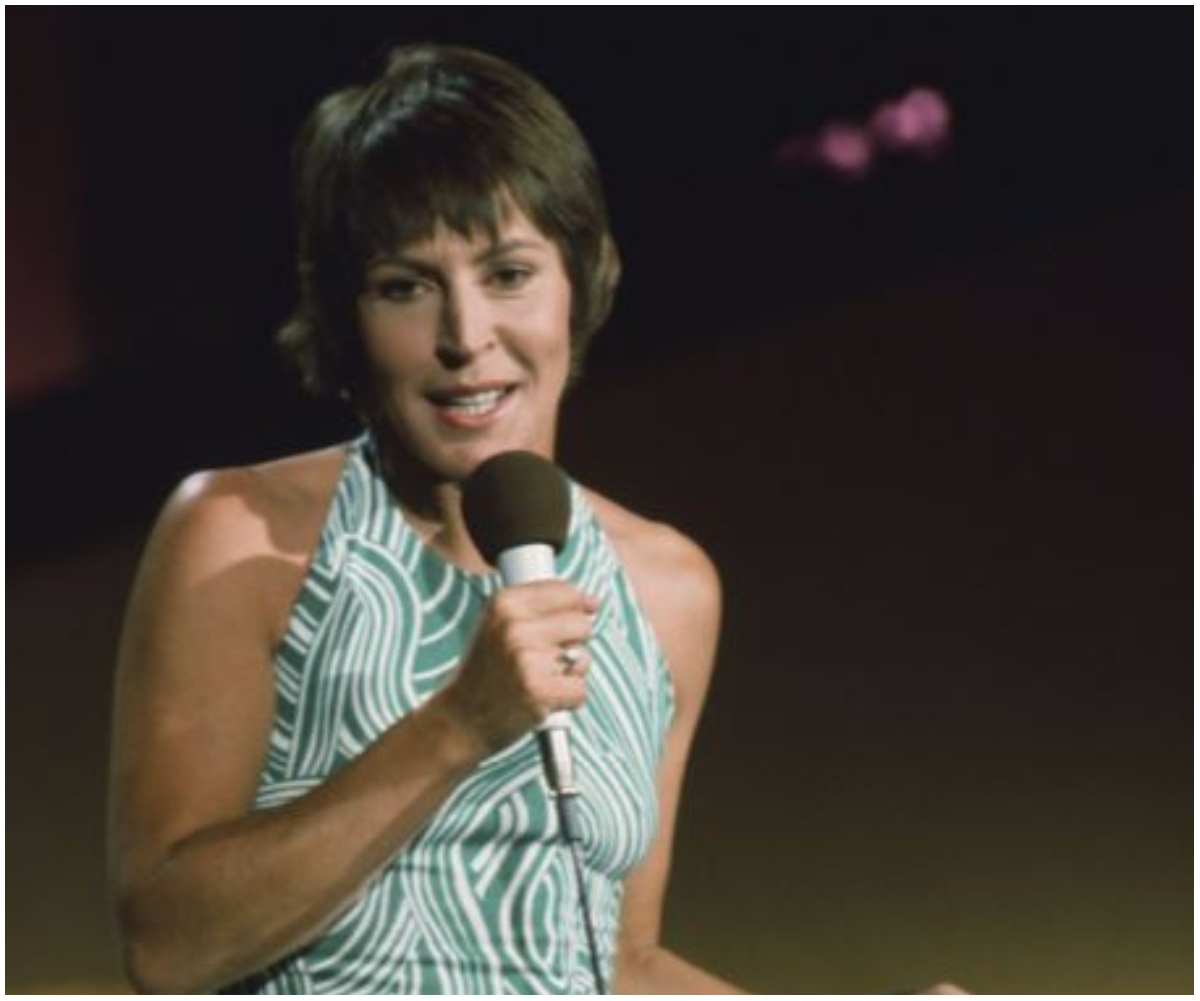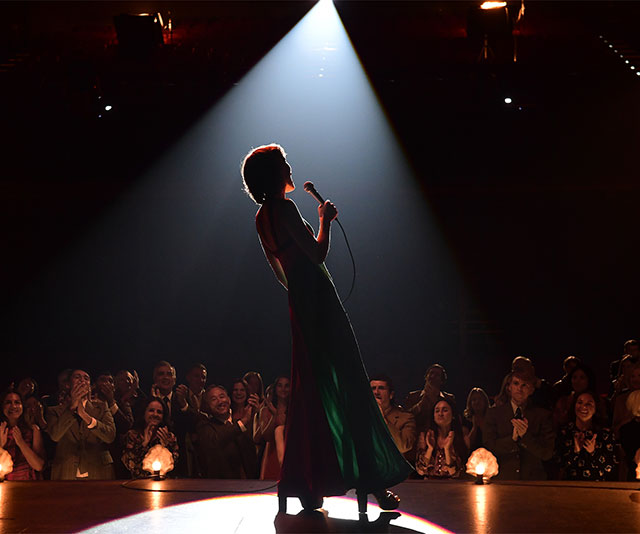UPDATE: A few weeks after this article went to print in the October 2020 issue of AWW, Helen Reddy passed away aged 78. Taking to her official Facebook page, Helen’s children, Traci Donat and Jordan Sommers, confirmed her death in a statement.
This article, from her daughter Traci’s eyes, pays tribute to the iconic singer’s legacy.
Dazzling in a flowing magenta gown, Australian singer Helen Reddy’s smile was equally bright as she strode on stage to accept the Grammy Award for her global hit, I Am Woman, on March 3, 1973.
Having beaten out stiff competition in the form of icons Barbra Streisand and Aretha Franklin, the 31-year-old thanked her husband, Jeff, “because he makes my success possible”.
Then, without missing a beat, she continued, “And I would like to thank God, because she makes everything possible”.
Polite applause followed, but many in the crowd were visibly shocked.
The televised ceremony was held in Nashville that year, the traditionally conservative home to country music, and the atmosphere in the city’s Tennessee Theatre was tense. For while the singer’s words, spoken with conviction, delighted her fans, not everyone appreciated them.
Courageous and audacious in equal measure, Helen, who was the first Australian to win the prestigious award, had earnt a place in music history. Cementing her reputation as a champion of feminism, she went on to smash stereotypes, galvanising a generation of women in their fight for equal rights.
Going on to become the top-selling female singer in the world, with a slew of hits including Ain’t No Way to Treat a Lady, Delta Dawn and Angie Baby, and hosting her own TV show, Helen retired 18 years ago, coming back with one final live performance in 2017, fittingly singing I Am Woman.
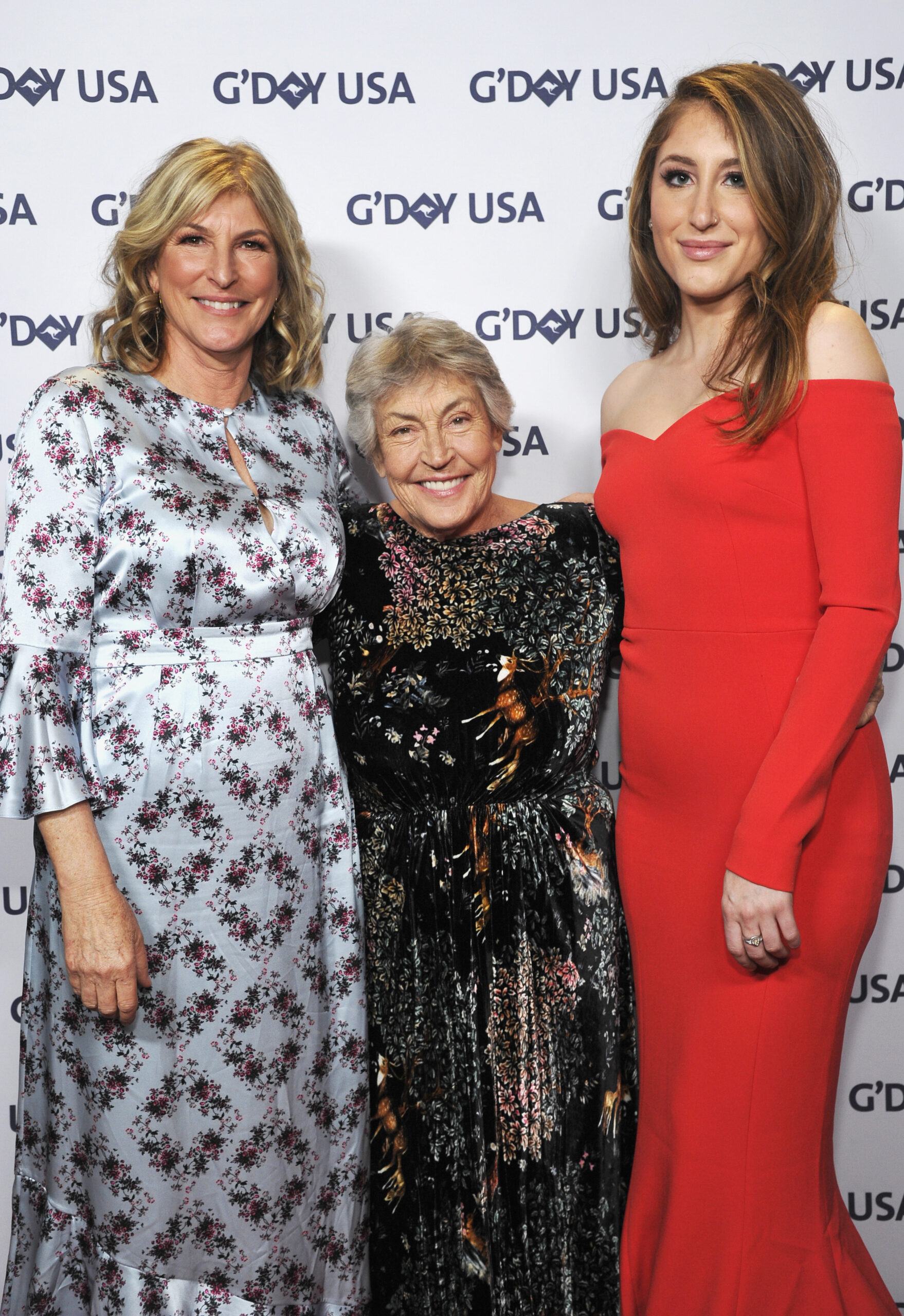
Traci with her mum Helen and daughter Lily.
(Getty)Now, a new audience is discovering her fascinating life and songs with the film I Am Woman, starring a luminous Tilda Cobham-Hervey as the charismatic singer.
At age 78, Helen was in assisted living at Hollywood’s Motion Picture and Television Home and no longer gave interviews.
Instead, I met her daughter, Traci Donat, for a chat (social-distancing style) at a hotel in Santa Monica, California to discuss what it was like growing up with the trailblazer, and to learn about the woman behind the legend.
By any estimation, Helen Reddy’s career was extraordinary, but to Traci she was simply “Mum”.
Maybe not the usual kind of mum – “she was always working when I was growing up” – but nonetheless very loving and devoted.
Arriving at the hotel, there’s no mistaking Traci, who I spot at the far end of the lobby.
Radiant in a summery dress, she has the same sculpted features, high cheekbones and expressive eyes as her mother.
The 57-year-old lives with her husband, Lucas, in Malibu (“I’m a California girl, but Australia is in my DNA”) and owns a company that creates health drinks “based on traditional folk remedies”.
Traci insists she hasn’t inherited her mother’s gift.
“I come from such a long lineage of performers – my mother’s parents, her sister, my cousin, and yet I had no interest.”
She adds that her 21-year-old daughter Lily, a talented musician, has a cameo in the film as a nightclub singer. “It skipped a generation!” Traci laughs.
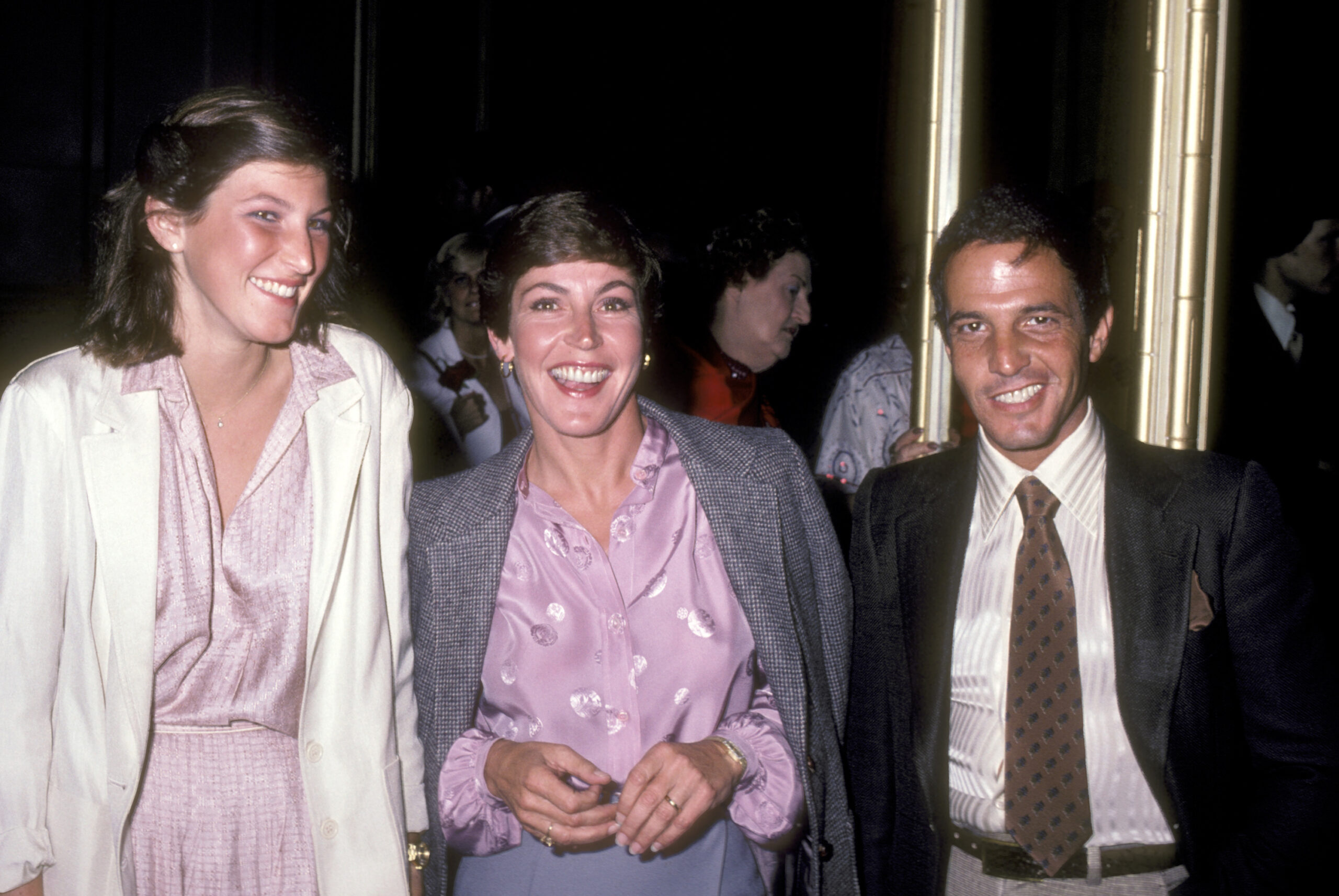
Traci and her mum attend the Presidential Fundraiser Dinner for Governor Jerry Brown on February 29, 1980.
(Getty)Born and raised in Melbourne, Helen seemed destined for a career on stage.
Entertainment, specifically music, was in her blood – her parents, Max Reddy and Stella Lamond, were well-known vaudeville entertainers.
Indeed, Helen made her debut at age four at the Tivoli Theatre in Perth, sharing the bill with her father.
By the time she was 15, Helen worked full-time, moving to Sydney in 1960 where she performed in clubs, made TV and radio appearances, and had her own weekly radio show, Helen Reddy Sings.
At 19, she married Traci’s father, Kenneth Weate, a much older musician.
Traci never knew him. By her early 20s, Helen was a single mum who enlisted the help of friends so she could continue her gigs.
“I remember in Australia she had a roommate who would watch me when she was out working at night,” Traci recalls.
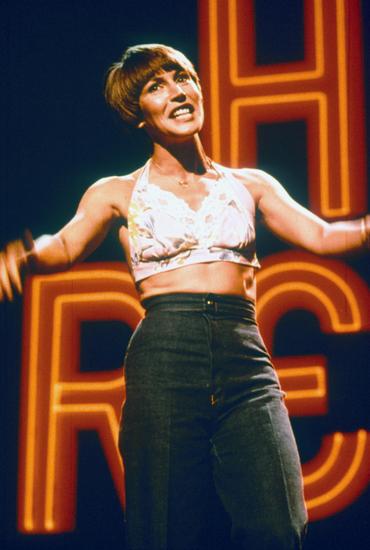
Helen was a single mum who enlisted the help of friends so she could continue her gigs.
In 1966, after winning a singing contest on the Australian TV show Bandstand, Helen cashed in the prize money, buying two one-way plane tickets to New York, where she had been promised a recording contract.
“It was an incredible opportunity,” Traci says of the leap of faith.
“The dream was to move to America. That’s what you had to do if you wanted to make it.”
But once Helen was in New York, the contract never materialised – her hopes were dashed. Still, determined to make a go of life in America, she landed low-paid nightclub gigs and rented a cockroach-infested bedsit in Manhattan.
“Mum had cardboard in her shoes as makeshift soles, because she couldn’t afford new shoes. I remember her counting out change to get a glass of milk and she was two cents short, and the waitress was like, ‘I’m sorry’,” Traci says.
Somebody took pity on the young woman and paid the bill. “We lived in extreme poverty,” Traci says.
“When you’re a child, you don’t have anything to compare it to. But my mum’s got an incredible will and she believed in herself.”
It was that drive which stopped Helen from giving up and returning home to Australia.
Traci recalls going on endless (mostly fruitless) auditions with her mother and accompanying her to gigs.
“She couldn’t afford childcare, so I would go to nightclubs with her.”
Those New York years may have been characterised by financial hardship, but they were also exciting artistically and politically.
Helen struck up a friendship with legendary music journalist and feminist Lillian Roxon, another groundbreaking Aussie known as the “mother of rock”, portrayed powerfully in
the movie by Danielle Macdonald.
“The two women were drawn together because of their shared roots,” says Traci, noting that there weren’t many Australians in New York during the ’60s.
“When you’re a stranger in a strange land, to be able to connect with someone who understands where you come from means a lot.”
“When you’re a stranger in a strange land, to be able to connect with someone who understands where you come from means a lot.”
(Getty)It was Lillian (author of what’s still considered to be the seminal Rock Encyclopedia) who educated Helen about feminism and helped to inspire the singer to write I Am Woman.
“They were advocates for each other,” Traci explains, adding Lillian’s death from asthma in 1973, at age 41, devastated her mother.
It was also in New York, when Traci was almost four years old, that Helen would meet another person who would change her life – her second husband, Jeff Wald (played by Evan Peters in the film).
A talented agent (his clients later included American singer Tiny Tim and British rock band Deep Purple), it was Jeff who first believed in Helen and backed her all the way, even when she was repeatedly told by music executives that she didn’t have what it took to make it.
They had met when Jeff gatecrashed Helen’s 25th birthday party, arranged for her by friends.
“I think it was love at first sight for both,” says Traci, her eyes tearing up as she recalls becoming a family – the two swiftly became inseparable and soon married.
“I called him ‘Dad’ from an early age; he adopted me, so he’s actually my dad.
He always says to me: ‘I fell in love with you first, before I fell in love with your mum’. On Sundays, I remember being on his shoulder, watching parades … it was magical.”
Traci also has a younger half-brother, Jordan Sommers (Helen and Jeff’s son).
“He’s always just been my brother,” she smiles.
A writer living in London, Jordan is an associate producer on I Am Woman.
Once married to Jeff, Helen’s financial struggles were behind her. However, although Jeff was successful, he had a volatile temperament and was frequently fired from jobs, says Traci, who is still close to her father.
“To this day, he’s charming, even though he’s a rascal and scoundrel at the same time!” she chuckles.
Eventually, the family moved west when Jeff took a job in Los Angeles. But for Helen, LA life was far from idyllic.
Her singing career on hold while her husband was at work, she was expected to be a housewife – something she never wanted.
“Trust me, my mum didn’t cook or do any of that stuff,” Traci laughs.
“She was a good mum, but she wasn’t domestic … that isn’t what lit her up.”
It was, however, a period of growth and expansion for the singer.
“I witnessed a woman who had gone through all the hardship in New York – sexism, discrimination, poverty,” Traci says.
“Then, coming to LA, she became an activist and held a feminist group at our house.”
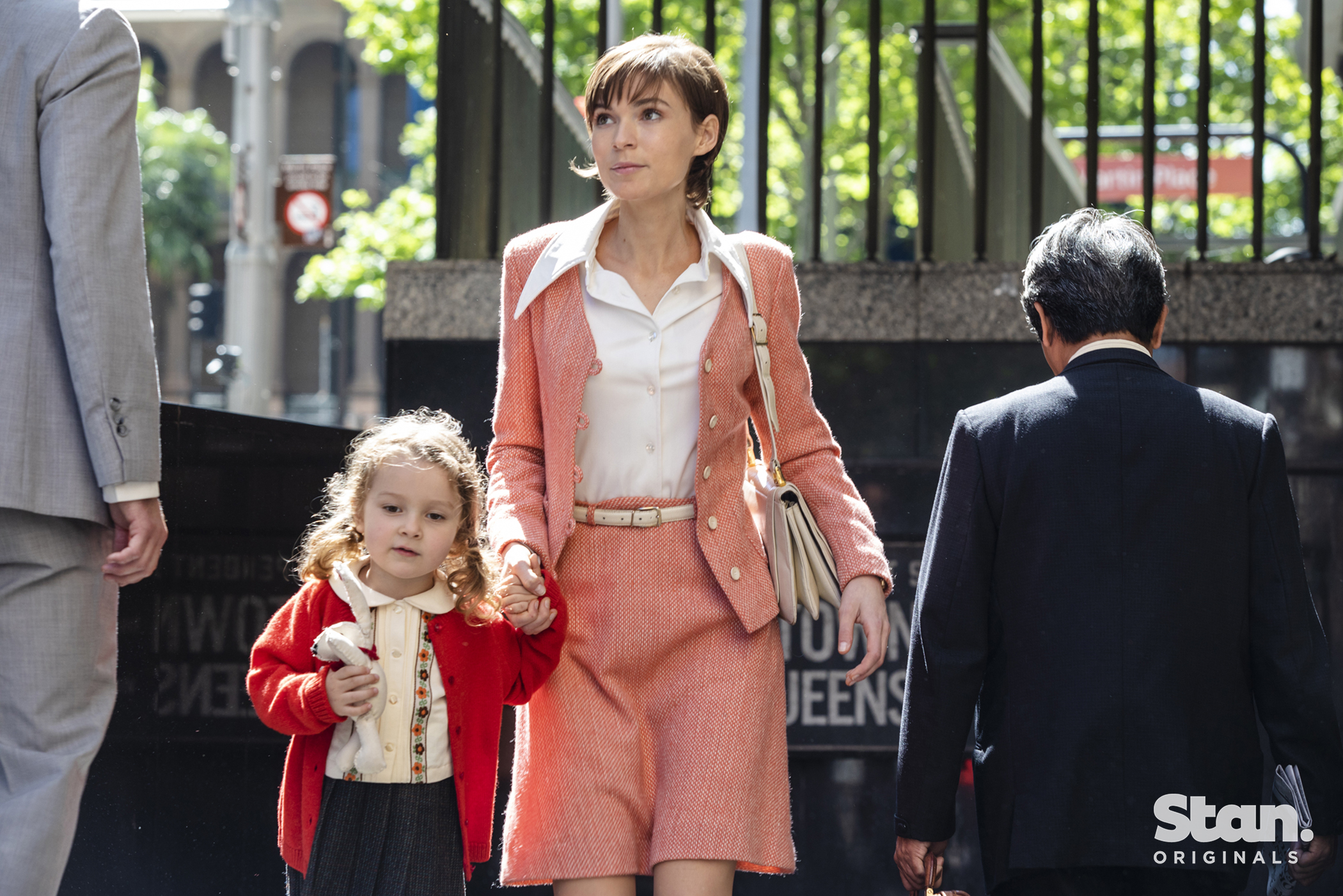
Tilda in a scene from I Am Woman.
Finally landing a record deal, Helen’s first hit in 1971 was I Don’t Know How to Love Him from the musical Jesus Christ Superstar.
“It was like, ‘whoa!’ Our lives changed within a very short period of time,” Traci recalls.
“We went from food insecurity to extreme wealth … Suddenly, I could have a horse!”
The following year, I Am Woman would be a game-changer.
Helen told her daughter that she wrote the lyrics (working with Australian singer-songwriter Ray Burton) because she wanted to make a difference to women. It was original, catchy and powerful.
However, selling the song to record company executives was no easy task. Helen was told it was “niche and narrow”, would only appeal to extreme “women’s libbers” and would surely “kill” her career.
With the backing of Jeff, Capitol Records was eventually persuaded to release the song, which reached the No.1 spot in December 1972, proving Helen was, in fact, in sync with women everywhere, not just activists.
“It was very exciting for my mum because it connected with people at an emotional level,” Traci says.
I Am Woman was played at equal rights rallies, where women would link arms, belting out the indelible lyrics: “I am woman, hear me roar in numbers too big to ignore …”
It was a thrilling time to be in California.
“The whole LA music scene was exploding,” says Traci, mentioning artists in her parents’ inner circle, such as Joni Mitchell and Neil Young.
She remembers “being backstage at the Troubadour [the iconic LA music venue] running around with Mum.”
In 1973, Helen became the first Australian to host her own network variety TV show.
“I was there during tapings and I used to run around the NBC studio,” says Traci, who recalls meeting Sonny and Cher, and country star Glen Campbell.
Socially, it was exciting too. There were lavish parties and dinners at the Reddy/Wald home.
“Elton John would come and play tennis at our house. All the kids would line up on the neighbour’s rooftop to watch,” Traci smiles.
Other guests included Karen Carpenter.
“I loved her voice … I remember shaking her hand and it was so small.”
Another frequent guest was her mum’s “close friend” Olivia Newton-John.
Because of the Australian connection, Traci says they established a strong bond. “We’d all eat Polly Waffles, my mum’s favourite,” she laughs of the popular Aussie chocolate bar.
“The story goes,” Traci adds, “that Olivia got her role in Grease when my parents introduced her to [the film’s producer] Allan Carr at our house.”
Those were heady days, but they were also challenging for Traci and her brother, because Helen was often away performing and always working.
“There were missed birthdays and sometimes that was hard … but in retrospect,” Traci says. “Oh my gosh, I would so much rather take the mum I had over one who made cookies.”
And when Helen was at the height of her career, Jeff was successful, too, with A-list clients ranging from Sylvester Stallone to Donna Summer.
“We had an excessive lifestyle, private planes … this is what happens to a lot of people who make money quickly,” Traci reflects.
“The cashflow feels like it’s going to go on forever, but of course it doesn’t.”
Helen had a strong bond with Olivia Newton-John.
(Getty)And it didn’t. As Helen’s career rocketed, her marriage spiralled downhill.
In dramatic moments in the film, viewers are shown friction between the couple as the balance in the marriage shifts, largely because Jeff developed a drug habit, which dominated the family’s life.
“He had a temper like anyone with a cocaine addiction … he would yell,” Traci says.
“My dad hid a lot from my mum. It’s not fun to live with someone who’s on drugs. They’re volatile, they’re inconsistent, they’re irrational, they’re paranoid.”
During the last years of Helen and Jeff’s marriage, “it was not a happy home life,” Traci says.
“I remember they had always been a team and now they were separate a lot of the time.”
But Traci is quick to add that her dad has now been sober for many years.
For Helen, there was increasing pressure to work and perform without taking a break, in order to keep the lifestyle going. Eventually the couple split up, saddled with serious debt. By that time, Traci was in college.
“They sold their house and financially there were tough times,” she says.
Compounding the struggles, Helen’s popularity fell. What’s fascinating, says Traci, is how the singer rebuilt her life.
Helen had a third marriage to drummer Milton Ruth (they later divorced), and revitalised her career.
While continuing to sing at rallies for women’s rights, she explored projects outside entertainment, including hypnotherapy and genealogy.
“She found out one of our ancestors came on a ship to Australia from England and was one of the original settlers,” Traci says.
Looking back, Traci’s favourite Helen Reddy song is You and Me Against the World from the 1974 album Love Song for Jeffrey, which resonates on a personal level. We hear Traci as a little girl at the start and end of the song, when she tells Helen: “I love you, Mommy”.
But I Am Woman, she says, “is part of my DNA”, as well as marking the high point of Helen’s career.
“It’s her legacy,” Traci says. “What greater gift can you give to humanity than to make people feel good about themselves and advocate for equality and justice?”
Traci is optimistic that the movie will inspire a new generation.
“I think Tilda did an amazing job,” she says about the actor who doesn’t do her own singing, but nails the lead role. “There were a couple of times during the film when I said to my husband, ‘Whoa, it’s a bit weird’.”
Helen loved it, too. The producers screened the film at her assisted living home, where, “she was singing along with all her friends. The biggest indicator of how she felt was when it was all over … she sobbed,” Traci says. “I think she felt honoured.”
And while Helen’s career is far behind her, Traci says her mum is content.
“She’s very much the entertainer at her home, where she’s surrounded by friends. In a funny way, she’s the happiest I’ve ever seen her,” Traci muses.
“I think my mum has lived with pressure her whole life. She’s the one who always had to hold things together. Now, she’s always smiling and dancing – and, of course, singing.”
